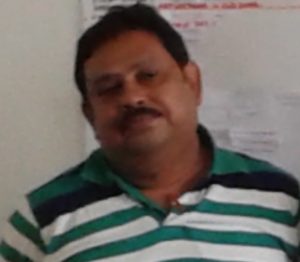This “Voices from the Field” webinar occurred on Wednesday, May 10 from 10-11:30 a.m. EST.
Webinar summary:
This interactive panel will discuss women’s movements fighting for better livelihoods, ending violence against women, and supporting inclusion and rights in India. Participants will learn about current majority-women campaigns and movements in West Bengal and Bhopal involving thousands. Discussants will share insightful observations about the challenges of being a solidarity bridge-builder between grassroots movements and global support networks, as well as about the types of tactics and strategic impact that women have on movements, including their leadership and planning.
Presenters:
 Arnab Chakraborty works at a national NGO called PRADAN (www.pradan.net) with and for extremely poor women to create robust community organizations to stimulate change in each member who individually feels powerless, each with a deeply limiting sense of self-efficacy. He helps them create an environment of togetherness and oneness, lending support to and reinforcing each other and more easily and readily learn from each other. These women working together creates synergy, a social capital, a social and political space for them to change the distribution of power in society. All these involves “enabling” women to take charge of their life around the economic and socio-political realm. This is to ensure that each poor woman is supported to develop livelihood options enhancing her control over economic resources; effectively participates in local governance systems and builds gender-sensitive accountability processes; negotiates intra-family issues that hinder equal access to rights for women and girls, including addressing domestic violence and access rights and entitlements enshrined in the Constitution. Arnab is also a 2016 LIN Fellowship member and received a small grant to develop and implement training on nonviolent action and resistance to Adhivasi women in West Bengal. The grant supported several TOT workshops and training and action plans distributed to many thousands of women who began their public nonviolent resistance in March 8 on International Women’s Day.
Arnab Chakraborty works at a national NGO called PRADAN (www.pradan.net) with and for extremely poor women to create robust community organizations to stimulate change in each member who individually feels powerless, each with a deeply limiting sense of self-efficacy. He helps them create an environment of togetherness and oneness, lending support to and reinforcing each other and more easily and readily learn from each other. These women working together creates synergy, a social capital, a social and political space for them to change the distribution of power in society. All these involves “enabling” women to take charge of their life around the economic and socio-political realm. This is to ensure that each poor woman is supported to develop livelihood options enhancing her control over economic resources; effectively participates in local governance systems and builds gender-sensitive accountability processes; negotiates intra-family issues that hinder equal access to rights for women and girls, including addressing domestic violence and access rights and entitlements enshrined in the Constitution. Arnab is also a 2016 LIN Fellowship member and received a small grant to develop and implement training on nonviolent action and resistance to Adhivasi women in West Bengal. The grant supported several TOT workshops and training and action plans distributed to many thousands of women who began their public nonviolent resistance in March 8 on International Women’s Day.
 Reena Shadaan is a doctoral candidate in the Faculty of Environmental Studies at York University (Toronto, Canada). Her work explores gender and environmental racism, environmental health, and reproductive justice. Since 2013, she has been Coordinating Committee member of the North American solidarity tier of the International Campaign for Justice in Bhopal (ICJB) – an environmental justice and corporate accountability campaign that is led by survivors of the 1984 Bhopal gas disaster, and seeks justice for the ongoing disaster in Bhopal, India.
Reena Shadaan is a doctoral candidate in the Faculty of Environmental Studies at York University (Toronto, Canada). Her work explores gender and environmental racism, environmental health, and reproductive justice. Since 2013, she has been Coordinating Committee member of the North American solidarity tier of the International Campaign for Justice in Bhopal (ICJB) – an environmental justice and corporate accountability campaign that is led by survivors of the 1984 Bhopal gas disaster, and seeks justice for the ongoing disaster in Bhopal, India.